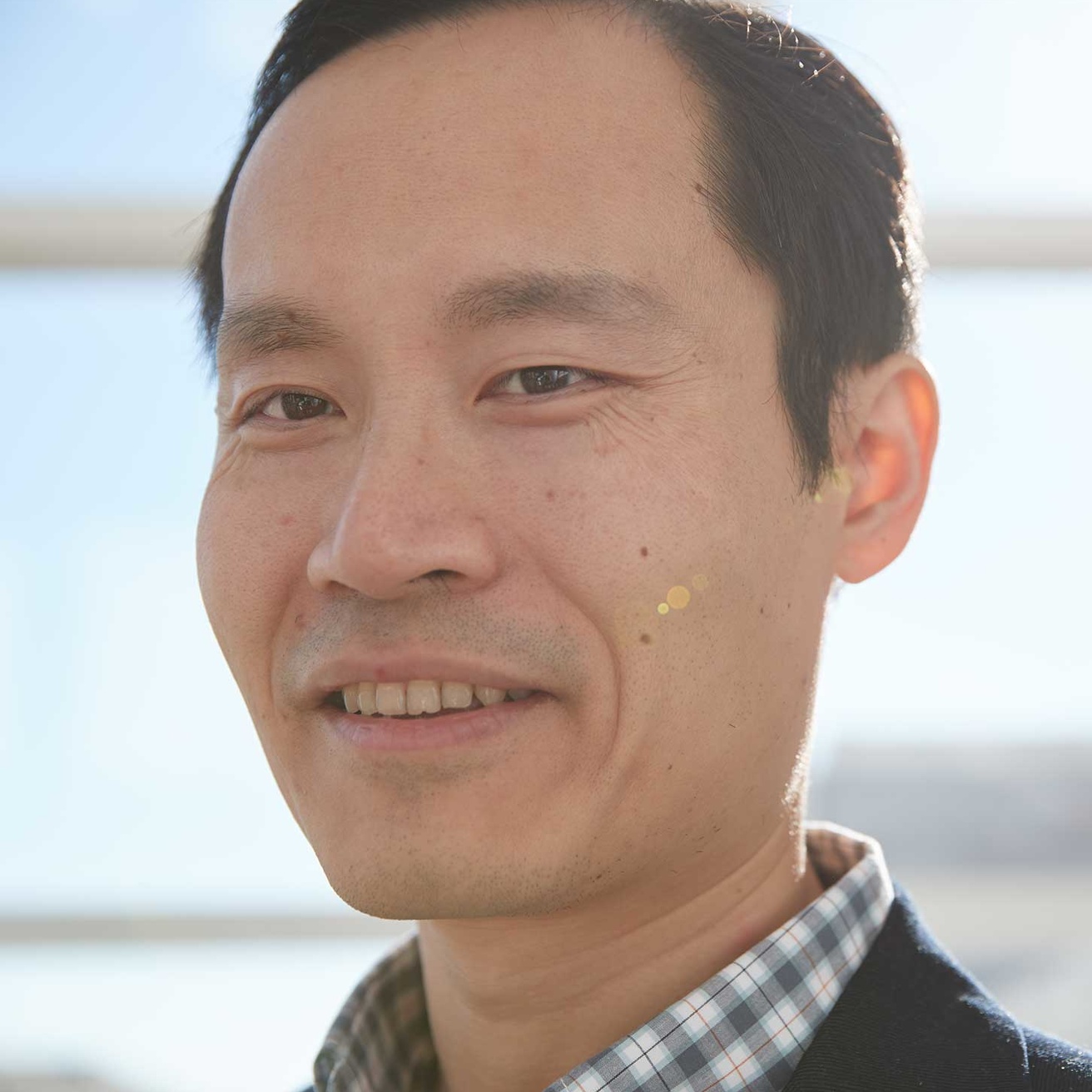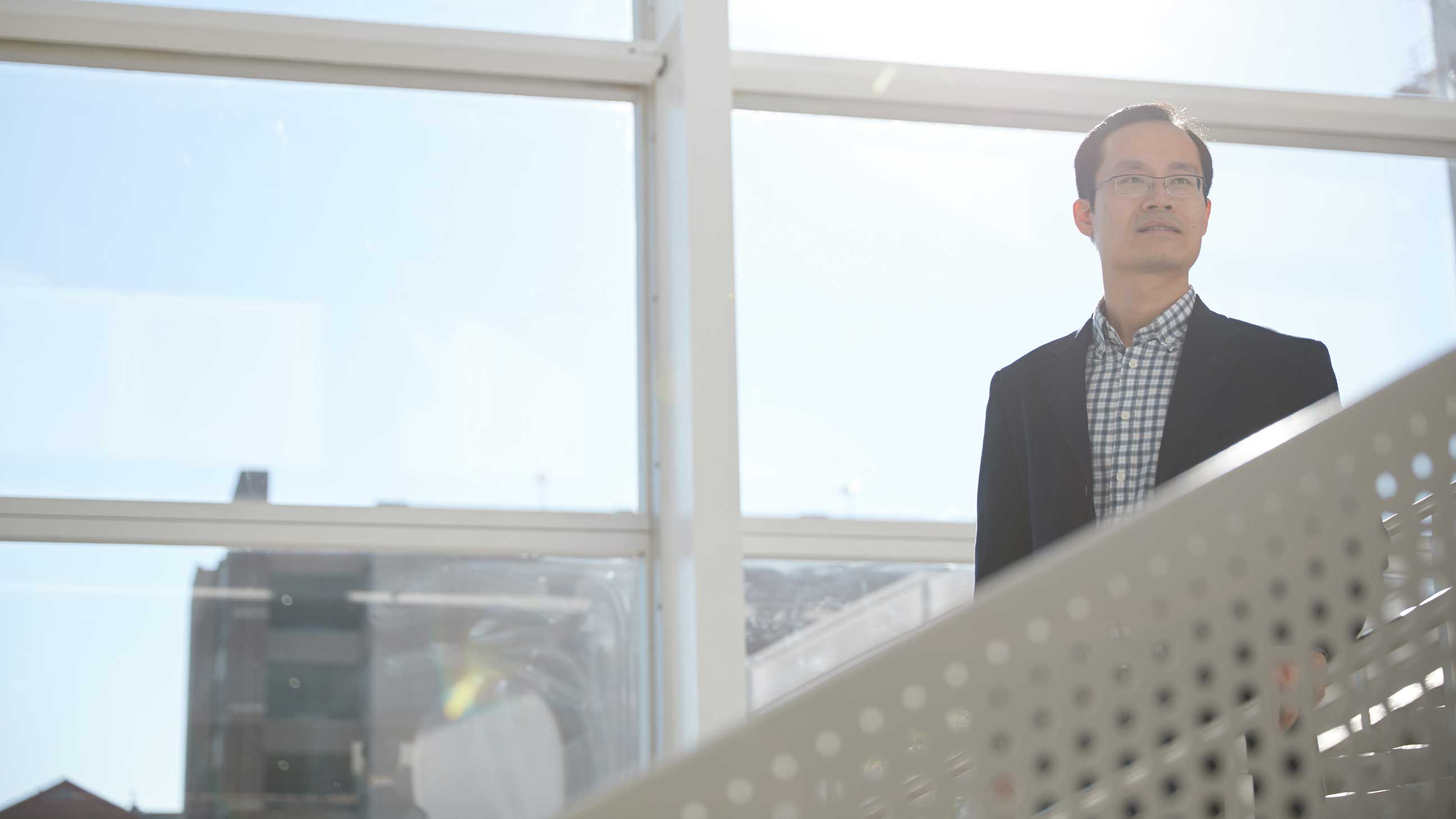
His experience at Iowa and Tippie's reputation helped Ke Shen land a job right out of the gate.
Challenge 1: Getting in and getting started
Getting a PhD in finance means beating a lot of odds. Just getting in is the first challenge.
“I applied a lot of different places, because it’s very competitive,” Ke says. “For example, Iowa only recruits two or three candidates each year. And while other schools made offers, I’ve never regretted coming here. It’s a very prestigious program.”
Ke came to Iowa in large part because of the faculty. Since beginning his PhD, he’s worked closely with his advisor, Professor Tong Yao—with whom he’s co-authored, and presented, his first working paper.
“He’s an expert in the area, and we work as a partnership,” he says. “Professor Yao is my coworker, coauthor, and advisor. Just by looking at any research question, he knows what it could contribute to the literature, or if it’s been done before,” Ke says.
Overall, it’s been this partnership that’s fueled his success at Tippie.
“At Iowa, the faculty are very open-minded. They want to work with students. You constantly see papers coauthored by PhD candidates and faculty members.”
“And even after we graduate, you see former students still working with their old advisors. It’s a lifelong relationship.”
Challenge 2: Getting published and getting noticed
Ke came to Tippie to dive into research. Since he’s been here, he’s realized that research is only half the battle.
“We’re trying to get into one of the top three finance journals,” he says, “and a lot of that process comes down to presenting.”
The presentation comes after an already extensive writing process—nailing down a research question and digging into data. It takes three months to go from 'idea' to 'working paper.'
But that’s no guarantee a paper will make it to a journal.
To accomplish that, you attend conferences. You get exposure. People talk seriously about your work. Then you polish, you get feedback, you revise. And then you repeat. Having Professor Yao by his side has given him confidence throughout the process.
“I see people get an article published eight years after they write it,” Ke says. “But we’re well on our way to submitting something polished.”
In the meantime, his work has helped him to leap over another major hurdle—a faculty placement after his doctorate’s complete.
Challenge 3: Getting the job you want
Generally, PhDs interview at two major conferences. The first is in October.
There, 150 schools are present. Ke was interviewed 25 times. Each school will see only 20 to 30 candidates, selecting three or four for a follow-up interview. Many programs have just 10 faculty spots total—making new openings extremely competitive.
The competition means most candidates must attend a second conference in January before receiving an offer. But Ke accepted a tenure track position at Lehigh University in December.
Both Tippie’s reputation and his experience at Iowa helped him land the job.

“When you say you’re getting your PhD at Iowa, schools are immediately interested. And the other big element is your research—who you’re working with, what you’re working on, and how you present.”
“In that as well,” Ke says, “Iowa prepared me to be an impressive candidate.”
Challenge 4: Getting ahead
Just because you get an offer doesn’t mean you get a break.
“Getting tenure in a finance department is very difficult,” Ke says. “You have teaching and service responsibilities as well as research.”
So the time Ke saved on the job search has already come in handy.
“The tenure clock doesn’t start with your position; it starts now. Now I get to focus on my research, and I’ve gotten a head start.”
At the same time, he’s gotten to share his research—the questions and answers that brought him to Iowa in the first place.
“I get to pursue practical research questions—work that’ll have value to the public, that might influence how they spend their money. Switching from a corporate job to the academic world has been really fulfilling for me.”
Overall, despite the challenges, Ke knows the transition was right for him.
“My advisor is very happy, I’m very happy, my family is happy. And I’m very excited for what the future holds.”